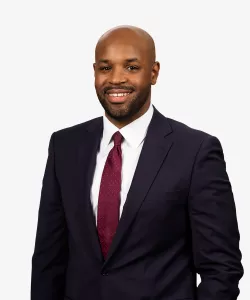New York City Will Allow a Private Right of Action for Violations of Earned Sick and Safe Time Act
Effective March 20, New York City will allow “any person” to bring a private right of action for violations of the Earned Sick and Safe Time Act. As a result, New York City employers are encouraged to review their safe and sick leave policies to ensure compliance, as it is expected that individuals will bypass filing a complaint with the NYC Department of Consumer and Worker Protection and, instead, file a lawsuit in court.
Background
New York City’s Earned Safe and Sick Time Act requires employers to provide safe and sick leave to employees working in New York City “for the care and treatment of themselves or a family member and to seek legal and social services assistance or take other safety measures if the employee or a family member may be the victim of any act or threat of domestic violence or unwanted sexual contact, stalking, or human trafficking.” The amount of safe and sick leave is dependent on employer size:
- Employers with 100 or more employees must provide up to 56 hours of paid leave each calendar year.
- Employers with five to 99 employees must provide up to 40 hours of paid leave each calendar year.
- Employers with four or fewer employees and a net income of $1 million or more must provide up to 40 hours of paid leave each calendar year.
- Employers with four or fewer employees and a net income of less than $1 million must provide up to 40 hours of unpaid leave each calendar year.
- Employers with one or more domestic workers must provide up to 40 hours of paid leave each calendar year; employers with 100 or more domestic workers must provide up to 56 hours of paid leave each calendar year.
New York City employers must allow eligible employees to use safe and sick leave as it is accrued, with no waiting period for new hires. Alternatively, employers may frontload safe and sick leave at the beginning of the calendar year. Employees can use safe and sick leave for unexpected reasons without giving advanced notice, but employers can require documentation when employees use more than three workdays in a row. Employers must provide employees with a written safe and sick leave policy and inform employees of their accrued, used, and total leave balances on a paystub or through an employee-accessible electronic system.
Amended Rules for New York City’s Earned Safe and Sick Time Act
On September 15, 2023, the Department of Consumer and Worker Protection adopted new amended rules related to New York City’s Earned Safe and Sick Time Act with an effective date of October 15, 2023. Some of the key parts to the amended rules include:
- Clarifying that the method for determining the size of employers is based on the “total number of employees nationwide” and is determined by the “highest total number of employees concurrently employed” during a calendar year.
- Full-time, part-time, joint employees, and employees on a paid or unpaid leave of absence are all counted when determining the total number of employees.
- Employees who are telecommuting “while physically located outside of New York City” will not be considered to be “employed for hire within the City of New York” even if the employer is located in New York City.
- If an employee who is based outside of New York City is “expected to regularly perform work in New York City during a calendar year” that employee will be counted under New York City’s Earned Safe and Sick Time Act but only for hours worked by such an employee within New York City.
For more information on New York City’s Earned Safe and Sick Time Act, including the recent amendments, please review the Department of Consumer and Worker Protection’ earned safe and sick time webpage.
Private Right of Action
Effective March 20, “any person [may] commence a civil action in any court of competent jurisdiction” by bringing a private right of action for violations under New York City’s Earned Safe and Sick Time Act. This new right will allow individuals to bypass the filing of an administrative complaint with the Department of Consumer and Worker Protection and, instead, file a lawsuit within two years from the date the person knew or should have known of the alleged violation.
Individuals bringing a private right of action may seek penalties against the “entity or person found to be in violation” for $500 for the first violation, up to $750 for a second violation and up to $1,000 for “each succeeding violation” within two years of “any previous violation.” Importantly, the new law allows these civil penalties “on a per employee and per instance basis”. Individuals seeking to bring a private right of action may also recover injunctive and declaratory relief, attorneys’ fees and costs and other appropriate damages.
Next Steps
New York City employers are encouraged to review their safe and sick leave policies to ensure compliance, as it is expected that individuals will bypass filing a complaint with the Department of Consumer and Worker Protection and, instead, file a lawsuit in court. ArentFox Schiff LLP is available to assist with these undertakings.
Contacts
- Related Practices


